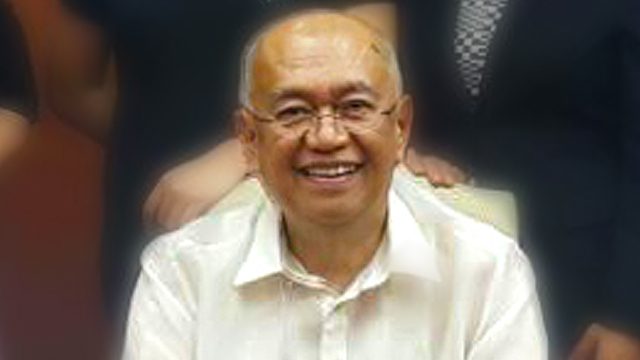SUMMARY
This is AI generated summarization, which may have errors. For context, always refer to the full article.

DAVAO CITY, Philippines – The Philippines’ lone Islamic bank wants the government to inject an additional P2 billion worth of capital so it could finally be in the black beginning 2018, its highest official said.
Al Alamanah Islamic Investment Bank of the Philippines (Al Amanah) has been reporting net losses for the past few years, and to reverse that it awaits Congress to approve the amendment of its Charter, according to Alex Bangcola, the bank’s chairman and chief executive officer.
“By 2018, I want the bank to earn money,” Bangcola told Rappler in an interview Tuesday afternoon, October 3.
A bill proposing to amend the existing Al Amanah charter has been filed at the House of Representatives. In its provisions, it raised the bank’s authorized capital stock to P10 billion.
It also said that the Secretary of Finance may request to increase the authorized capital stock with the approval of the President of the Philippines.
Al Amanah is owned and operated by the government as a subsidiary of the Development Bank of the Philippines (DBP). It was established in 1974 through Republic Act 6848 which authorized the bank a P1-billion authorized capital stock.
The bank provides medium and long-term credit facilities mainly for clients coming from the Autonomous Region in Muslim Mindanao. It also finances programs for clients saving for their pilgrimage to Mecca.
Bangcola, appointed by President Rodrigo Duterte in February, is hoping that Congress would amend their charter.
The fresh capital, he said, would help the bank reach its two other goals under Bangcola’s tenure: to expand its Halal financing products and to be a fully Islamic bank.
To turn into a fully Islamic bank would mean it would go a way with its conventional banking products and focus on wadiah current account, wadiah savings account, general investment account under profit sharing scheme, and its pilgrimage savings plane.
Meanwhile, Bangcola noted that countries like Qatar would prefer investing in the Philippines through Islamic financing. He said the bank can facilitate foreign investments through sukuk or Islamic financial certificates that comply with sharia laws.
This preference, he said, could be traced to the Philippines’ experience with Germany in the Ninoy Aquino International Airport Terminal 3 project, where a European investor expressed dismay for their first overseas venture which failed to see a return of investment.
The advantage of Al Amanah, he said, is not only it is an Islamic bank, it is also a state-owned bank.
“Compare that to a commercial bank when it files bankruptcy, then it’s very difficult to run after it,” he said.
Despite bright prospects, however, the bank only booked P1.27 million gains from Islamic finances in 2016, relatively higher compared to P341,610 gain in the past year. It is the smallest bank in terms of total assets, ranking 42nd in the list prepared by the Bangko Sentral ng Pilipinas in June.
It booked 2016 with net interest income, or the bank’s revenue minus the expenses in liability payments, at P22.788 million. But in the same year, it reported a net loss of P51.5 million.
Based on the bank’s financial statements posted on their website, it been in the red since 2013. This, as the bank spent more on operating expenses than it earned from its core business. – Rappler.com
Add a comment
How does this make you feel?
There are no comments yet. Add your comment to start the conversation.